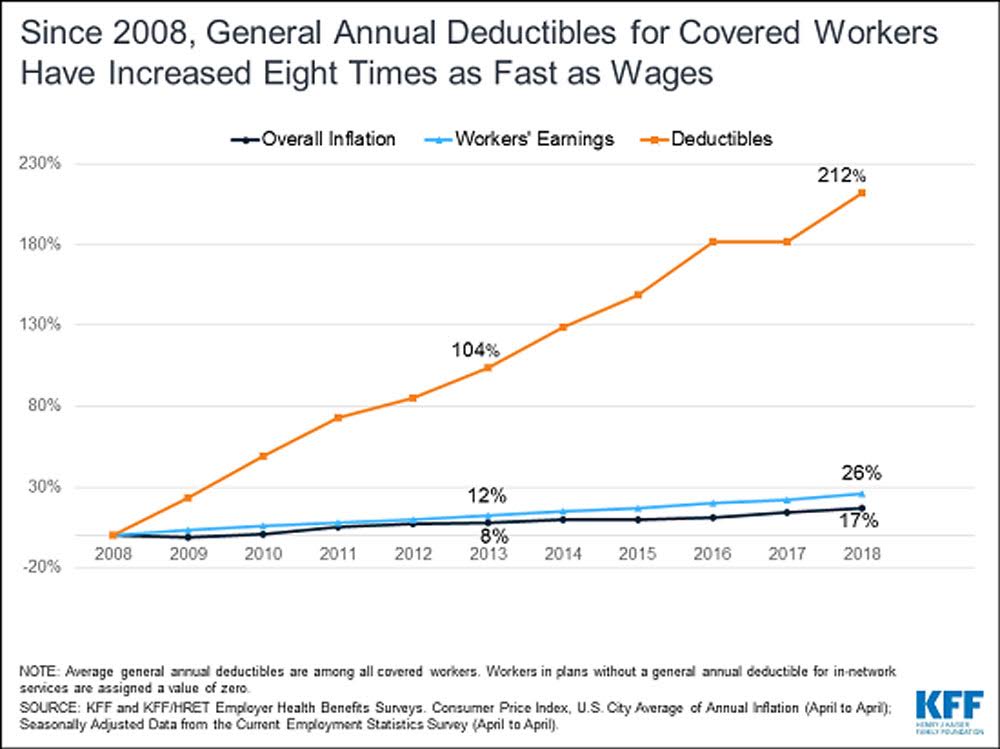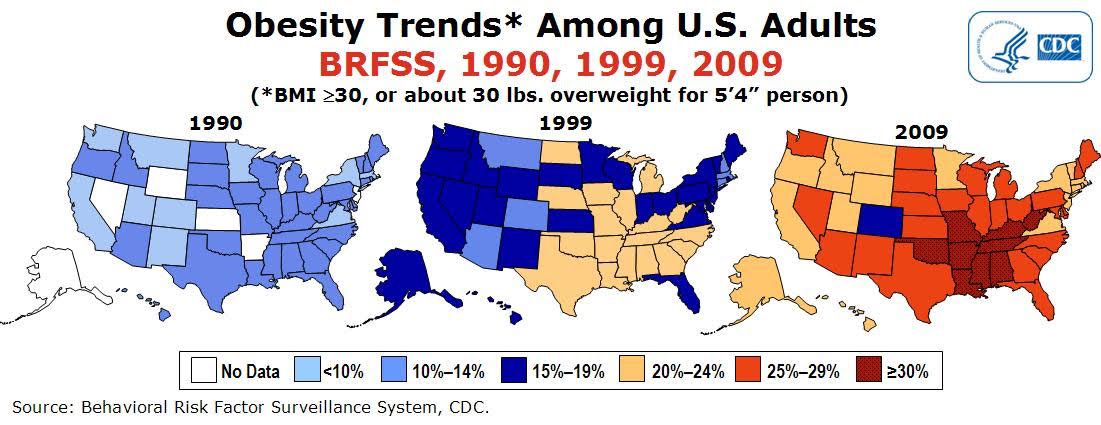Pay More, Get Less - Our Healthcare System
Oct 30, 2018
“Since 2008, average family premiums have increased 55 percent, twice as fast as workers’
earnings (26%) and three times as fast as inflation (17%).”
“Premiums for employer-sponsored family health coverage rise 5% to average $19,616; single
premiums rise 3% to $6,896.”
“Deductibles for covered workers has tripled since 2008, growing 8 times faster than wages.”
Not trying to be a Negative Nancy, but that’s no bueno. Unfortunately, this is where our current
healthcare system stands.
This data was released by the Kaiser Family Foundation in a recent survey.
The annual survey was conducted between January and July of 2018 and included 4,070
randomly selected, non-federal public and private firms with three or more employees (including
2,160 that responded to the full survey and 1,910 others that responded to a single question about
offering coverage).
Over the past decade, insurance premiums and deductibles have significantly increased relative
to workers’ earnings and inflation.
We continue to pay more for insurance, but get less in return.
We want a healthier country, but we continue to create barriers to access “healthcare.”
So how do we change this?
Use the system less and, more importantly, NEED IT LESS.
What I’m getting at is taking control of our own health. We have plenty of data to show that
chronic disease is impacting this country.

Improving and maintaining our health and wellness through movement, nutrition, sleep, stress
management, and social relationships is crucial. With technology, we have this information at
our fingertips. While it can be tough to decipher through the guruism and instamodels these days,
it’s important to do your research and find professionals that you trust with your health.
Here are some general recommendations we give:
1. Move everyday. Strength train at least 2-3x per week. Test your heart and lungs.
2. Eat real food, not too much, mostly plants (but also.. protein is life).
3. Get at least 7 hours of quality sleep each night.
4. Stress management is often overlooked and this can be managed through self-reflection,
meditation, counseling, exercise, etc. Find what works best for you.
5. Social connection and relationships is an area I believe is very important for all of us. We
all have our people and it’s important to prioritize those relationships for our own health
and well-being.
If you want to dive further into the details of this survey, you can find the original article here:
https://www.kff.org/health-costs/press-release/employer-sponsored-family-coverage-premiums-
rise-5-percent-in-2018/?fbclid=IwAR2u9WY8T4eAiEOUaJQkjHXF7-p6xEVXPHXhx5Qpup-o-
NKz-slUBSK-1Bc
Insurance and healthcare is expensive. Employers and employees are starting to take notice of
this tread. They’re being incentivized to take a proactive approach as well as minimize the use of
their healthcare.
At the end of the day, let’s get people moving better and eating less shit, and more importantly,
realize that we have the power to take control of our health and avoid being imprisoned by this
expensive healthcare system.
Cheers,
Dr. Ravi, DPT
Let us help you figure out to live your best active life today!
Remember, Movement is Medicine!

